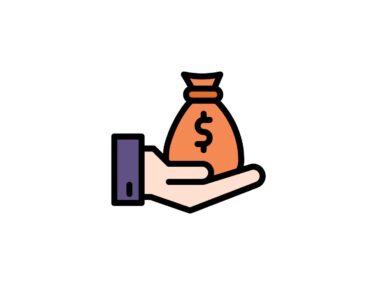Beginners in any role take a while to get the hang of things, and this is especially true with SEO. Where everything from learning a new vocabulary to being introduced to a mix that ranges from technical aspects like algorithms to aesthetic angles of content is involved, there’s bound to be some confusion!
The one thing accomplished SEO experts will tell you, however, is that even as you get yourself accustomed to new theories and practices, what’s more important is to avoid the errors that beginners are most prone to make.
In a nutshell, delaying the right moves may postpone your growth by a few days or weeks, but making the wrong moves could hamper your website’s growth right away and cause long-term damage too.
We checked in with our community of business leaders and SEO experts to let our readers in on some of the most common SEO errors they’ve witnessed in their line of work, and the responses we received not only introduce beginner SEO enthusiasts to common pitfalls but also reveal the best ways to avoid them.
Read on!
Lack of Internal Linking
One common SEO blunder among beginners (probably I did, too) is the lack of internal linking.
Internal links are essential for distributing page authority across a website and enhancing user navigation. They act like the glue that holds your website together, facilitating a smoother experience for visitors.
While many focus on creating high-quality content and linking to credible external sources, they often neglect to connect their related blog posts or pages. This oversight can hinder their overall SEO performance, as it misses valuable opportunities to enhance site authority and user engagement.
I guess I can sum it up as “The heart of SEO lies not just in external links but in the connections you create within your own site.”

Naveena Srinivas
Content Marketing Lead, Two Minute Reports
Failing to Optimize Images
Since I run an online store, I know how important it is to pay attention to the little things when it comes to SEO. I learned this the hard way since I started my business from scratch.
In the beginning, I didn’t realize how much pictures that aren’t optimized can slow down a site. When I first started our e-commerce store, I wanted to get my items listed as soon as possible, so I posted big, high-resolution pictures without thinking about how they would look. People stopped visiting my website since it took too long to load and some pages didn’t show up right.
I finally learned how to use tools like TinyPNG to make images smaller while keeping their quality good. The files got a lot smaller, but the quality stayed the same. I changed the files’ names to something like “engraved-pocket-watch-gift.jpg” and added alt text so that search engines could figure out what the pictures were about.
These changes not only sped up my site, but they also helped it rank higher and kept people on it longer, which led to more sales.
I’d say that your website’s usability and how people feel about it can change a lot with small changes, like making pictures work better. It’s easier to make changes that will make your people happy and help your business grow.

Chris Bajda
Managing Partner, Groomsday
Choosing Quantity Tactics Over Quality
Common SEO blunders I often see beginners make is falling for outdated, “cheap and easy” tactics that were effective 20 years ago but now harm your site’s ranking.
For example, buying Fiverr packages that promise to post your site’s photos on dozens of photo-sharing sites, creating Google maps with hundreds of geo-relevant pins, or resurrecting expired domains to exploit their backlinks.
These strategies might seem like quick wins, but they send red flags to Google and lower your off-site SEO score.
Search engines now prioritize quality over quantity. To correct this, beginners should invest in building genuine, relevant backlinks, creating high-value content that naturally attracts traffic, and focusing on real engagement with their target audience.
SEO is a marathon, not a sprint—shortcuts often lead to penalties or poor rankings. Stick to strategies that align with Google’s evolving algorithms for long-term success.

Rich Stivala
Web Designer & SEO, worldwideRICHES
Targeting Irrelevant Keywords for High Volumes
The most common SEO blunder I’ve seen, especially from beginners, is a focus too much on keywords with high monthly search volumes rather than more relevant pages that might only receive a fraction of the visits but have far more motivated visitors.
Often, the high traffic pages are primarily visited out of a desire to learn more, rather than to desire to drive leads and sales results.
Many of my most effective campaigns have ignored these short-tail keywords in the beginning and achieved better results by focusing on smaller keywords with lower intent and traffic.
I was previously part of the SEO teams at Hims & Hers Healthcare (NYSE:Hims) and Udemy (UDMY) and have achieved first rankings for 100s of very competitive positions in health, pharma and software, and still frequently see this blunder even in forward-thinking companies.

Nicholas Gibson
Founder, NJGibson
Failing to Align Content with User Search Intent
A common oversight I’ve noticed among SEO beginners is failing to align content with user search intent.
Often, there’s a heavy focus on keyword density, overlooking the true goal: to fulfill the searcher’s needs. We prioritize understanding the purpose behind user queries, whether they’re looking for information, a specific website, or to make a purchase.
Our approach involves identifying whether our target keywords serve to inform, navigate, or facilitate transactions. We then tailor our content to meet these specific needs.
This strategy not only enhances the relevance of our pages for search engines but also improves user engagement by providing precisely what searchers are looking for, thereby enriching their experience on our platform.

Hanzel Talorete
Content Manager, Get Smart Series
Failing to Optimize Meta Descriptions
I would say that Meta descriptions are important, but many people don’t pay attention to them.
I’ve been guilty of this myself. These are often the first things people see in search results. If they’re not optimized, your click-through rate may go down.
For the first few days, I thought the comments that were made for me were good enough. But as soon as I started writing personalized meta descriptions full of keywords, people started visiting and being interested in my site more right away.
Likewise, it’s simple to write meta summaries that make a big difference. When you carefully write them, they will accurately show what’s inside, which makes people more likely to click through. A small change, like changing the text on a product page, can make it stand out a lot more and get you more free business.
In my opinion, it’s easy and effective to improve your SEO and get more people to visit your site by spending time on your meta descriptions.

Jean Christophe Gabler
Publisher & Founder, Yogi Times
Poor URLStructure
A common SEO mistake is using poor URL structure, which can confuse search engines and users alike.
URLs should be clean and descriptive. A mistake beginners often make is using long, complex URLs filled with numbers or irrelevant characters. This can hurt your site’s ranking because search engines prefer URLs that clearly indicate what the page is about.
To fix this, simplify your URLs to include relevant keywords that describe the page’s content. Keep them short and free of unnecessary words or characters.
For instance, instead of a URL like “www.example.com/12345-!page-title,” opt for “www.example.com/page-title.” This helps search engines understand your content better and improves user experience, making your site more likely to rank higher in search results.
Insightful URLs are crucial not just for SEO but also for building credibility with your audience.
Irrelevant Backlinks
A common mistake that I have noticed many beginners in SEO and digital marketing make is obtaining a high amount of backlinks which don’t actually offer much value to the site.
Many beginners believe that they need to obtain as many links as they can to build authority and gather contacts.
However, less is sometimes more, especially if the few backlinks they do gather are top quality, from relevant websites.
Ensuring that your links have relevance and are from legit, authoritative sites is much more impactful than having a bunch of random links which can even be flagged as spammy.

Annie Everill
Digital Marketing Executive, Imaginaire Digital
Keyword Stuffing
Over-optimization of keywords is a common mistake beginners often make in SEO.
A decade ago, keyword stuffing might have worked to improve rankings, but search engines have since evolved to identify and penalize such tactics. Overloading content with repetitive terms can harm user experience and signal spammy behavior to search engines.
SEOs should rather focus on creating content that reads naturally, using synonyms and related phrases to enhance context. This not only improves readability but also helps search engines understand the broader scope of your topic.
Also, by using varied vocabulary and addressing related subtopics, you demonstrate expertise and provide value to readers.

Villiam Karasti
SEO Consultant, Pardott
Neglecting Internal Linking
A frequent mistake beginners make in SEO is not setting up proper internal linking.
Internal links connect your website’s pages, helping search engines understand the structure and hierarchy of your site. Without them, search engines might miss important pages, and your visitors can get lost navigating your content.
To fix this, start with a clear website hierarchy. Think of your site like a pyramid, with your homepage at the top and category or topic pages cascading below.
Next, when creating new content, include links to relevant pages. This not only helps search engines but also guides visitors to related information, enhancing their experience.
Tools like a website audit tool can help identify where internal links are lacking, giving you a roadmap for improvement.
Consistent, strategic internal linking can substantially boost your site’s visibility and user engagement, contributing to better rankings.

Casey Meraz
CEO, Juris Digital
The BoostMyDomain team thanks these experts and leaders for taking the time to share their valuable insights on common SEO errors beginners are most liable to make.
BoostMyDomain invites you to share your insights and contribute to our authoritative publication. Reach a wider audience, build your credibility, and establish yourself as a thought leader in an industry that caters to every business with an online presence!





